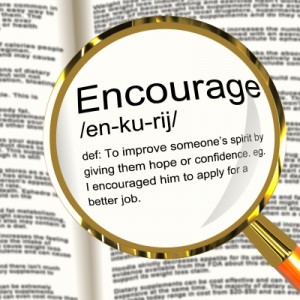In part 1 of 3 on Change we discussed the possibility of change occurring in our life. Recognizing the need for change is a start. We must also believe that change is possible.
Today we begin to START the forward action part of the change process. Recognizing that there is a problem is the first step. Some evaluation of the situation can be helpful. If you stop there then you have only become a proficient navel gazer. It is at this post that we need to START to move in a new direction. (See zzca for an overview of START)
Let’s take the first two letter and START:
Set Goals:
It is easy to confuse goals with desires. I recently read a post where people were asked to share their goals. Some replies were like: “I want to lose 150 pounds.” Or “To stop having panic attacks at a crowded store.” Both of these would be great accomplishments. They are both worthy objectives. But as a starting point they are desires. They are huge feats that require many small changes.
For best success goals should be:
- Specific
- Measurable
- Time sensitive
- Written and Shared
Research shows the writing and sharing goals significantly increased the likelihood of success. Writing a clear, specific, measurable, time sensitive goal and sharing it with someone for accountability will help bring the desire into reality.
Goals can either be outcome or performance based. An example of an outcome based goal is: I will lose 5 pounds in 5 weeks. Whereas a performance based goal is: I will walk 10,000 steps 5 days a week for the next 5 weeks. They are both measurable and time sensitive.
Outcome and performance based goals each have their place in bringing about change. Ultimately we need to achieve the desired outcome. Nevertheless, performance based goals are a great tool to help lead us toward accomplishing whatever objective we need.
Consider the desire to stop having panic attacks in crowded stores. There may be many obstacles to overcome. Many outcome and performance goals and tools many be needed.
Tools:
Without the right tools we will not be able to accomplish our goals. Once we started turning desires into specific and measurable we need to gather the appropriate tools. Tools are the techniques, equipment, resources, and people we need to accomplish our goals and reach our objectives.
Books, training DVDs, equipment, technique, seminars, doctors, councilors, medication, friends, teachers and coaches are just a few examples of resources. It can be tempting to allow the lack of resources to derail our goals. Many resources require little to no money. Be frugal; but be willing to invest what you have too!
What do you desire? Can you turn that into a specific, measurable, time sensitive, written goal? If so, what resources do you need to accomplish that goal?
On the surface this may sound easy. The process may not be complicated. That, however, does not mean it is easy. Write me (david@HealingTheWoundsOfWar.com) if you want help defining your goals and locating resources. Perhaps together we can move forward.

